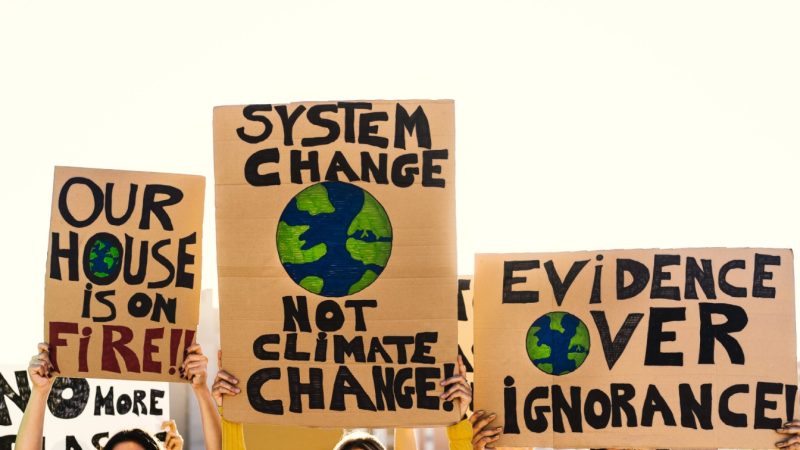African Counter COP and COP28: The Global Alliance for Green and Gender Action Puts The Role, Knowledge And Needs Of Women At The Forefront Of The Fight Against Climate Change

FOR IMMEDIATE RELEASE
[18 September 2023]
Six out of nine planetary boundaries have been crossed (Stockholm Resilience Centre) and the Intergovernmental Panel on Climate Change says that the world is likely to breach global temperature of 1.5 degrees above pre-industrial levels between now and 2027. COP28 is the moment of the first Global Stocktake, which means the assessment of where we are at in reaching the goals of the Paris Agreement.
To keep global heating to 1.5°C, COP28 must deliver a clear decision to equitably phase out all fossil fuels – coal, oil, and gas. While the Global Alliance for Green and Gender Action (GAGGA) will be present at COP28 with a delegation of GAGGA partners – women-led organizations working on local gender just climate solutions – GAGGA also supports the African People’s Counter COP starting today on the 18th of September, coordinated by the Africa Climate Justice Collective. GAGGA partners WoMin African Alliance and Kebetkache Women Development and Resource Centre along with various other women’s movements, grassroots networks, and a few non-governmental organizations (NGOs) are organizing the second Women’s Climate Assembly (WCA) in Lagos, Nigeria, from 24 to 28 September 2023 as part of the third African People’s Counter COP. The Women’s Climate Assembly will bring together community and women’s assemblies across the continent to build and advance a deeply Pan African perspective on the climate crisis and African climate justice, collecting statements and asks which will be shared during the official COP28 in early December in Dubai by GAGGA partners.
Building collective action and solidarity for protection and restoration
Approximately 55 partners of the GAGGA Alliance from more than 28 countries met at the beginning of September (4-6) in Amsterdam to discuss successful solutions against climate change, strategize about the (gender) just energy transition, accessing the Green Climate Fund and advocacy strategies for the COP28. These partners include women’s funds, environmental justice funds, NGOs and community-based organizations, who are leading efforts to adapt to climate change, prevent further greenhouse gas emissions and resist false climate solutions worldwide.
The GAGGA Alliance focuses on the protection and restoration of local ecosystems and the crucial role of women, inter, non-binary and trans people in the fight against climate change. It promotes the phasing out of the old fossil economy and the transition to a sustainable economy, in which the rights of communities, and those of women, inter, non-binary and trans people in particular, are guaranteed.
GAGGA urges governments to involve women-led community based organizations in the design and implementation of climate policies and funding. The UN Climate Panel has calculated that the Paris climate goals can only be achieved if the remaining forests are protected, due to their indispensable role as sponges for CO2, as home to biodiversity and as a source of livelihood for more than a billion people. The UN also states that Indigenous peoples protect about 20% of tropical forests, forming the last buffer against forest destruction by mining, the unbridled expansion of soy and palm oil and infrastructure such as ports and roads. GAGGA supports a range of proven methods of local land, forest and water management centrally on all continents, where Indigenous women play a central role.
What also makes the GAGGA alliance crucial is its emphasis on strengthening local financing mechanisms and small grants funds. These mechanisms can provide tailor-made support for local climate-related initiatives led by women, inter, non-binary and trans people who are generally excluded from accessing regular climate finance. This approach runs counter to the often top-down technocratic approach of climate finance mechanisms, and offers a form of support that meets the needs and knowledge of local communities, women, and young people.
To advance a gender-just approach to climate finance and policies, the GAGGA alliance is in dialogue with international institutions such as the World Bank and the Green Climate Fund, including by calling out false climate solutions that further affect nature and marginalize the rights and livelihoods of the local population.
GAGGA has recently extended its profound solidarity to the resilient communities of Rio Grande do Sul, South Brazil that are facing yet again uncountable losses – including lives – as a result of severe floods in a context of increasing climate disasters. This is one of many cases of lived experiences in communities, shared and represented by GAGGA partners during the Global Meeting in Amsterdam, facing the detrimental consequences of climate change, right now. Consequently, GAGGA is demanding that all governments, whether local, regional, or national, act with urgency to address this catastrophe, emphasizing how this is not a time for complacency or for opting for convenient, false solutions. It’s a time for tangible, systemic shifts that advance environmental justice and this needs to be on top of the agenda for the climate negotiations at COP28.
_______________________________________________________________________________________
For further information contact:
Suman Saurav, GAGGA Communications Strategist: gaggacommunication@fondocentroamericano.org, +91 883 9155 088
Noemi Grütter, GAGGA Co-Coordinator, Advocacy and Collaborations: n.grutter@fondocentroamericano.org, +41 79 922 75 94



